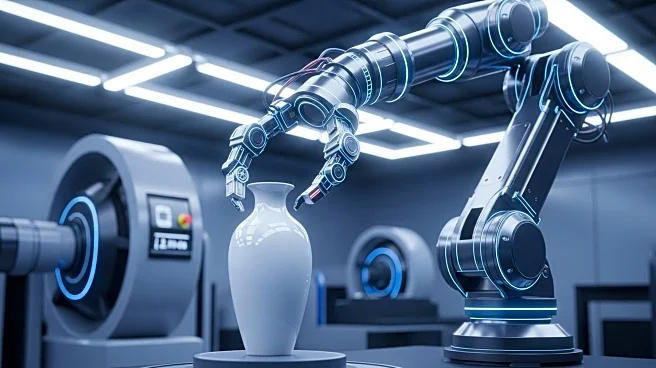What's Happening?
The traditional building ceramic industry is experiencing a contraction, with a decline in ceramic tile output and a reduction in the number of enterprises. In response, companies like Tian'an New Materials are diversifying into new fields such as AI, robotics, and chips. Tian'an New Materials has acquired a stake in Ruobo Robot, marking its entry into the humanoid robot market. This move is part of a broader trend where ceramic companies are seeking new growth opportunities in high-tech sectors.
Why It's Important?
The shift towards AI and robotics represents a strategic response to declining market conditions in the ceramic industry. By investing in high-tech fields, these companies aim to create new revenue streams and enhance their competitiveness. This diversification could lead to innovations in product offerings and manufacturing processes, potentially revitalizing the industry. The focus on AI and robotics also highlights the increasing importance of these technologies in driving industrial transformation.
What's Next?
As ceramic companies continue to invest in AI and robotics, there may be further developments in these technologies, leading to new applications and efficiencies in manufacturing. The industry's move towards high-tech sectors could attract new partnerships and collaborations, fostering innovation and growth. Additionally, the integration of AI into manufacturing processes may require changes in workforce skills and training, impacting employment patterns in the industry.
Beyond the Headlines
The transition to AI and robotics raises questions about the future of labor in the ceramic industry. As automation increases, there may be shifts in employment patterns, requiring new skills and training for workers. The focus on high-tech sectors also reflects a broader trend towards innovation and sustainability, which could influence regulatory policies and consumer expectations worldwide.









